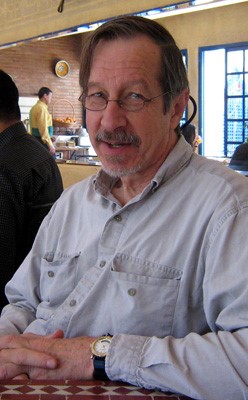Oct 19, 1941- May 17, 2016

Robert James Baum, a specialist in applied ethics, passed away at the age of 74 in Baltimore on May 17th, 2016, following a long struggle with Parkinson’s Disease. He is survived by Barbara Ann White, his partner of 10 years, his daughter Aimee Belser and her family, his two nieces, Cindy Cutler Skacel and Tammy Randa and their families, and his stepson, John Murphy and his family.
Baum was born on October 19, 1941 and was educated at Northwestern University, earning his BA in 1963 and his PhD in Philosophy from Ohio State University in 1969, with a dissertation on George Berkeley’s philosophy of mathematics, under the supervision of Paul Olscamp. He taught for some time at the Middle East Technical University in Turkey and at the University of Maryland at College Park, but spent most of his career at Rennselaer Polytechnic Institute in New York and at the University of Florida. He spent 12 years at Rennselaer, there achieving the rank of full Professor, before moving to Florida in 1981 as a new Department Chair. He retired in 2008, having devoted 27 years to the University of Florida.
Baum’s primary research and professional service was in the area of applied ethics, especially business ethics and ethics for specific professions. With Deborah Johnson and Norman Bowie he co-founded the Business and Professional Ethics Journal in 1981 and was co-editor through 1988, after which he was sole editor until 2010, when the journal was acquired by the Philosophy Documentation Center, which currently publishes it in cooperation with the Institute for Business and Professional Ethics at DePaul University. In 1991, Baum founded a second publication, Professional Ethics: A Multidisciplinary Journal, to provide a venue for what he saw as important work deserving exposure that could not fit comfortably under the purview of the first journal.
This publication was folded back into the first one in 2003. Both were sponsored for a time at the Center for Applied Philosophy and Ethics that Baum directed at the University of Florida.
His published research includes a short monograph, Ethics and Engineering Curricula, several edited anthologies on ethics, an edited anthology in the philosophy of mathematics, and many articles in such journals as Studies in the History and Philosophy of Science, Teaching Philosophy, and Proceedings of the Philosophy of Science Association. He gave more than 80 lectures at conferences, and himself organized conferences on professional ethics, the ethics of health care, the ethics of finance, and a special conference in honor of R. M. Hare. He had an overriding concern with bringing philosophical expertise to bear on practical problems, as also evidenced by his serving from 1974 to 1976 as the Director of the Ethical and Human Value Implications of Science and Technology Program sponsored by the National Science Foundation.
This concern extended to his teaching. He authored a textbook on logic that has gone through four editions, first published in 1975 and still in print today with Oxford University Press. As one of his former teaching assistants reports, he made great efforts to make his lectures engaging to students (even in as dry a subject as logic) and worked to connect the issues in his ethics courses with those students would encounter outside the classroom.
Outside of academic philosophy, Baum pursued a secondary avocation as a collector of antique kilims—flat weaves created by nomadic tribes in Europe, Asia and Africa. In the last decade of his time as a professor he was often invited to speak at conferences on kilims, and his collection numbered over 800 pieces, a collection that will be broken up and donated to museums around the country. Some of his more valuable pieces were shown at the University of Baltimore Law School’s Gallery of Art in an exhibit entitled “19th Century Women’s Abstract Art.” Baum was a relatively quiet person, thoughtful and mostly keeping to himself. His character is perhaps well portrayed by something we learned in the course of preparing this notice. He was very fond of picking blueberries and would arrange his travel so that he would be home when they were in season. He would drive to different farms to pick blueberries and prepare them with tofu, a dish he reported to be delicious.
—Department of Philosophy at the University of Florida
